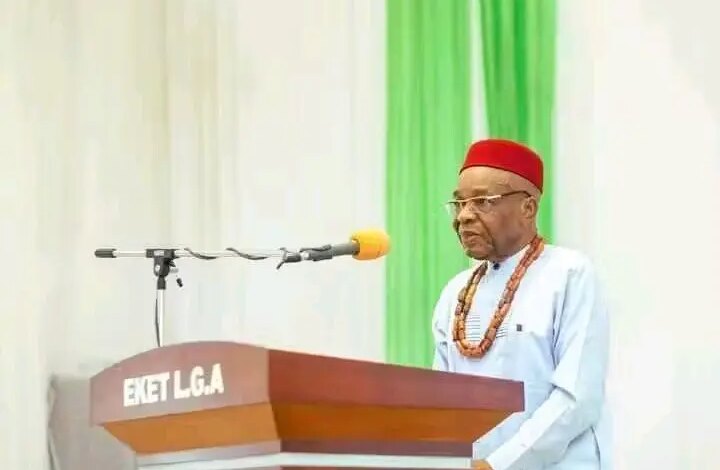No Ibibio land will be annexed for proposed Obollo State – Ex-minister Essien to agitators

A former minister of Lands and Urban Development, Chief Nduese Essien, has warned those agitating for the creation of Obollo State that no part of Ibibio land would be annexed to them.
Essien who spoke at the installation of His Eminence Ntenyin (Dr) Solomon Daniel Etuk as the 4th Grand Patron of Mboho Mkparawa Ibibio, said the renewed agitation by Obollo people for a separate state is a ploy “to grab Ibibio land”.
Recall that the people of Oro, Ibeno and Eastern Obolo local governments in Akwa Ibom have been championing the creation of Obollo State.
Essien, a former two term member of House of Representatives, claimed that the agitation for the state creation by the Obollos was an attempt to seize control of the Ibibio coastline, particularly the Stubbs Creek Forest, which he said had been lawfully defended by the Ibibio people up to the Privy Council in London.
He said, “Let me emphasise unambiguously: any attempt to appropriate Ibibio land must be vehemently rejected at all times. The ill-fated expedition has been exposed and must come to an end. No part of Ibibio land will be annexed.”
Essien recalled successive agitations by the Obollos which had met a brickwall, saying the current wave holds no water.
“The second wave of aggression through violence in 1993 was halted by the Justice Ephraim Akpata Commission of Inquiry, and a third in 2014 during the National Conference, where collaborators sought to merge the area with a part the neighbouring River State for a proposed Oil Rivers State,” he added.
Speaking on the installation of the Oku Ibom Ibibio as the Grand Patron of Mboho Mkparawa Ibibio, Essien challenged other sociocultural organizations to rise beyond ceremonial functions and play a stronger role in protecting Ibibio heritage, advocating for justice and voicing influential opinions on national discourse, instead of praising political establishments.
Essien commended Mboho’s achievements since its establishment in 1987, including the setting up of educational institutions, agricultural enterprises, tourism outfits and cultural initiatives, but urged its leadership to resist being used as a platform for personal political ambition.
He also described the Oku Ibom as a link between the ‘glorious past, our beautiful present, and the promise of a bright future”.





